How To Prepare for CLAT Logical Reasoning? | CLAT Mock Test Series 2026 PDF Download
With 20% weightage and around 22-26 questions, CLAT logical reasoning questions form a major section of the CLAT exam. The CLAT Logical Reasoning is one such section where candidates cannot risk losing marks by lack of practice. The section tests the analytical skills of candidates rather than theoretical knowledge and It can be aced by thorough practice and understanding only.
How to prepare for Logical Reasoning for CLAT?
Although this section is considered tough by many, it is nothing but a myth. CLAT Logical Reasoning simply demands clarity in concepts which can help with augmenting the overall CLAT score.
You will be tested on whether you are able to analyse the images being displayed and to logically deduce the correct answer from the available answer options.
Here are stepwise strategies compiled by EduRev Experts on the guidance of various CLAT toppers which will help you to clear CLAT in an excellent manner.
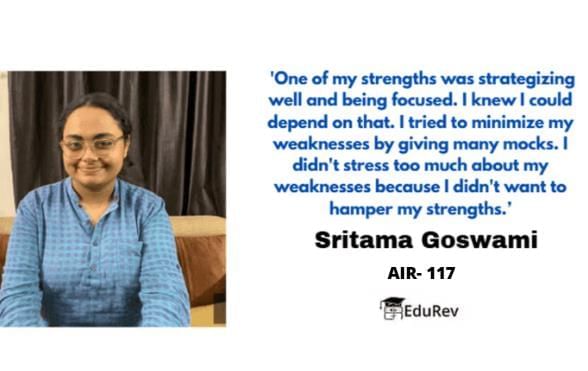
Step 1: Understand CLAT Exam Pattern and Syllabus Breakup
Pattern of questions: Here is the pattern of questions asked from Logical Reasoning Section for CLAT. The CLAT question paper will contain about 22-26 Logical Reasoning questions in the exam. The questions will be preceded by short reading passages of 300 words. Candidates need to read the given passages and then answer the objective-type questions. Check important CLAT Logical Reasoning syllabus and pattern highlights in the table:
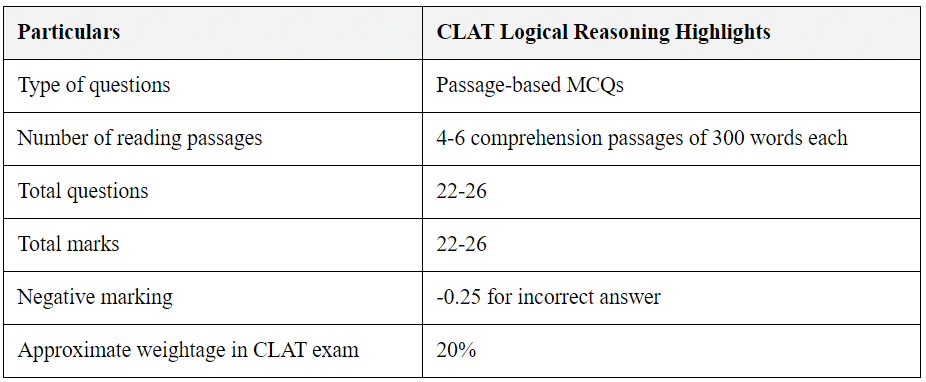
- Content of the passages: A number of the passages are going to be drawn from editorials, articles with arguments and statements. A number of the passages are going to be simple statements and arguments beginning relationships or giving some puzzles. However, there could also be some questions from number series, age, and blood relations.
CLAT Logical Reasoning Syllabus
The Logical Reasoning section of CLAT will include a series of short passages of about 450 words each. Each passage will be followed by one or more questions that will require you to: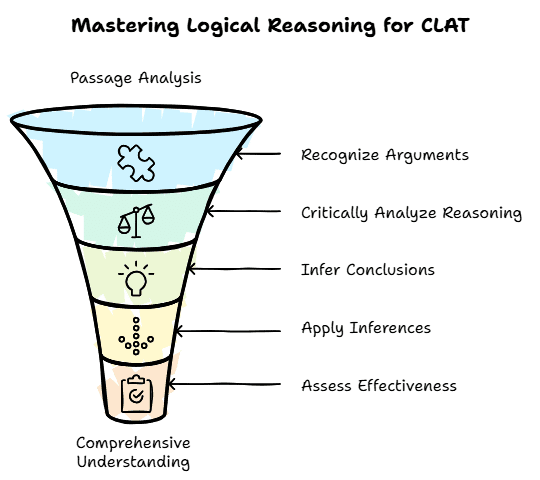
- Recognize an argument, including its premises and conclusions.
- Read and identify the arguments presented in the passage.
- Critically analyze reasoning patterns and evaluate how conclusions rely on specific premises or evidence, and how these conclusions can be strengthened or weakened by changes in premises or supporting facts.
- Infer what follows from the passage and apply these inferences to new situations.
- Draw relationships and analogies, identify contradictions and equivalence, and assess the effectiveness of arguments.
Step 2: Strategize and Focus on Important Topics of Analytical and Critical Reasoning
To understand Logical Reasoning we need to understand that there are two parts of it one is
- Analytical Reasoning
- Critical Reasoning.
After studying recent trends of questions in CLAT exam, it has been deduced that very few questions were there from Analytical Reasoning and maximum number of questions were covered from Critical Reasoning.
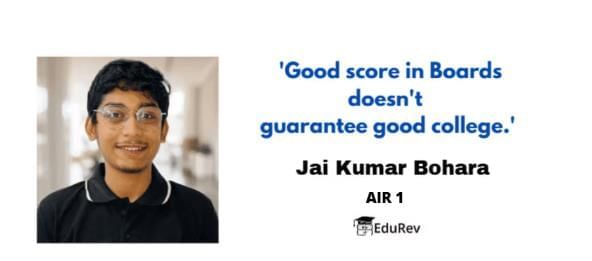
Critical Reasoning
Critical Reasoning mostly deals with words that is also called Verbal Reasoning where you use your skills of understanding a language. You need to think systematically in critical reasoning questions. You will be given a problem and you need to find out what is the cause of the problem, what is the solution, what are the options. So, you need to focus on nothing but systematic thinking.
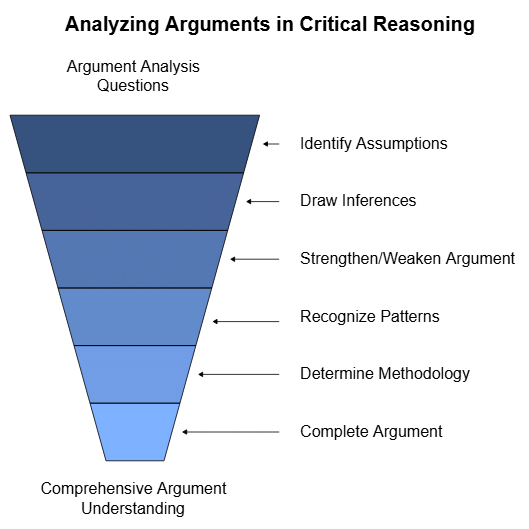
Common Types of Critical Reasoning Questions
- Assumption: The first one is they will ask you what is the assumption made by the author
- Inference or Conclusion
- Strengthen/ Weaken the Argument: One set of questions will be strengthen and weaken the argument.
- Follow the pattern of the argument: Original question will say A happens then b and c and d happened then you will have to look at the argument where it will say the same thing
- Method of argumentation: Does the author first give a conclusion, follow it up with support points, Does he give you support points followed up by the conclusion, what is the method in which he is doing this
- Complete the argument: Sometimes they will take away the last sentence and ask you to complete or conclude the argument
- Main point of the argument: The most common question asked is what is the main point of the argument or summary of the argument
The key to answering CR questions is to:
- Develop good reading skills
- Read newspapers every day
- Reading will help you understand arguments and answer questions based on them
Analytical Reasoning
In other law entrance tests weightage of Analytical Reasoning Section is more than Critical Reasoning Section. Analytical Reasoning is based on the concepts which you put together. Pen paper-based speed this section tests.
- In order to be able to solve Logical Reasoning questions quicker, it is important for you to learn certain shortcuts.
- Shortcuts can include things like making a mind map, diagram and so on. Learning and using shortcuts is particularly important for topics such as Syllogisms and Blood Relations.
Below mentioned are the important topics of CLAT Logical Reasoning: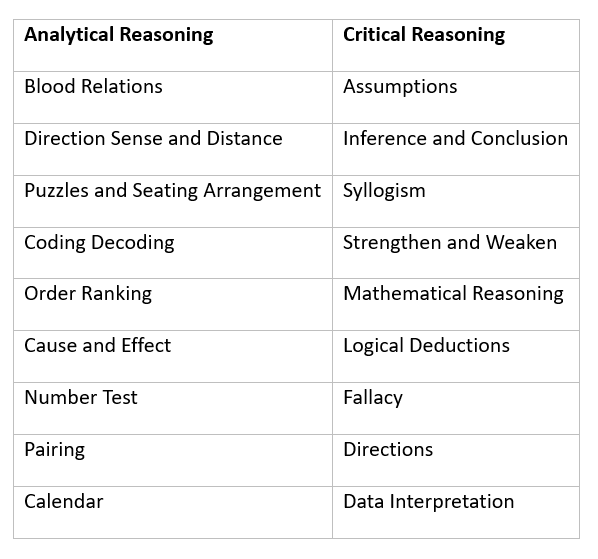
EduRev has compiled notes, tests and videos for your basic understanding of these topics. Click here to check.
Step 3: Choose a Comprehensive Resource and Practice Regularly
For CLAT Logical Reasoning, it's best to stick to one reliable book rather than using multiple sources. The idea that multiple books are necessary is a myth. Opt for a single high-quality book to gain a deep understanding of the topics and complete practice papers effectively. Consider the following recommended books:
- Verbal and Non-Verbal Reasoning by RS Aggarwal
- Analytical and Logical Reasoning by R.S. Aggarwal
- Analytical Reasoning by MK Pandey
Only practice can help you increase your speed and save time during the exam. It is recommended that candidates put extra effort and more time into this section as candidates often complain that logical reasoning is something very new and unfamiliar.
EduRev has compiled topic-wise and section-wise tests for your practice. Click here to check out.
Step 4: Solve Previous Year Papers, Sample Papers & Mock Tests

Candidates must refer to the previous year papers for their preparation of logical reasoning for CLAT. The previous year papers provide the CLAT logical reasoning sample questions. Though the exam pattern has been changed considerably, however, practising the fundamental operation will be required to answer the questions.
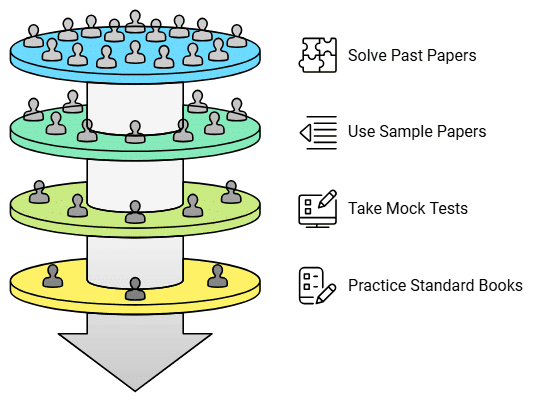
- Solve past 5 years question papers of CLAT: CLAT has moved from the previous test modalities and introduced comprehension type questions. But, still, the practice of logical reasoning questions from previous year question papers will be beneficial.
- CLAT Sample Papers: CLAT sample papers (new and previous years) are, in fact, one of the best ways to prepare yourself for logical reasoning.
- Practice Through Mock Tests: Only practice can help you increase your speed and save time during the exam. It is recommended that candidates put extra effort and more time into this section as candidates often complain that logical reasoning is something very new and unfamiliar.
- Practice questions from standard books: After referring to the previous year questions, candidates must practise the types of questions from the standard books as suggested below :
1. Analytical Reasoning (English) by MK Pandey
2. A Modern Approach to Logical Reasoning by RS Aggarwal
3. Arihant’s A New Approach to Verbal and Analytical Reasoning
Note: Don't just go on attempting mock tests and previous year's question papers without being prepared. This way, you will only waste your time. Of course, you can analyze 2-3 Previous year papers and then start practising but don’t just get stuck there
You can find Mock test series for CLAT on EduRev and practice them on regular basis.
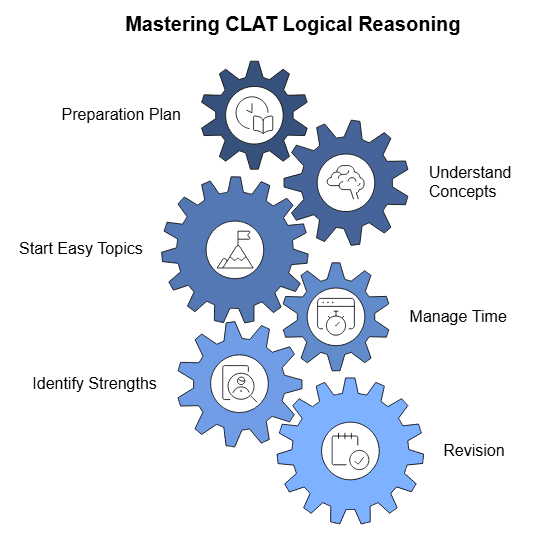
Step 5: Follow these Tips & Tricks
- Have a well-thought-out preparation plan: Try to devote at least one hour of your everyday time towards the preparation of Logical Reasoning section. Make a list of topics that you want to cover and create a deadline for yourself to finish the Logical Reasoning syllabus by that date.
- Do not mug up; practice: While preparing for the CLAT Logical Reasoning section, do not mug up things, rather try to understand the concepts and logic. Once you have understood the underlying concepts, practice the questions related to a particular topic as much as possible.
- Start with the easier topics and questions: Logical Reasoning is one section, in which if you understand the underlying logic, you will be able to solve the questions quickly. To keep your morale and confidence high, start preparing for topics in which you are most comfortable, gradually moving towards the tougher topics.
- Manage time: While attempting the CLAT papers, it is extremely important to keep a check on time. Managing time becomes even more important while solving Logical Reasoning, as questions in the section can sometimes be tricky and time-consuming.
- Identify your strengths and weaknesses: After attempting a CLAT question paper, it is important to analyse the errors you make in the Logical Reasoning section and thereafter work on your weaknesses and make your strengths even stronger.
- Revision: Keep revising the concepts and topics you have already studied so that you do not lose the grip on the same.
Sample Questions for CLAT Logical Reasoning
Each set of questions in this section is based on the reasoning and arguments set out in the preceding passage. Please answer each question on the basis of what is stated or implied in the corresponding passage. Do not rely on any information or facts other than the ones supplied to you.In some instances, more than one option may be the answer to the question; in such a case, please choose the option that most accurately and comprehensively answers the question.
Passage
We all make ethical choices, often without being conscious of doing so. Too often we assume that ethics is about obeying the rules that begin with “You must not…” If that were all there is to living ethically, then as long as we were not violating one of those rules, whatever we were doing would be ethical. That view of ethics, however, is incomplete. It fails to consider the good we can do for others less fortunate than ourselves, not only in our own community, but anywhere within the reach of our help. We ought also to extend our concern to future generations, and beyond our own species to non human animals.Another important ethical responsibility applies to citizens of democratic society: to be an educated citizen and a participant in the decisions our society makes. Many of these decisions involve ethical choices. In public discussions of these ethical issues, people with training in ethics can play a valuable role. In the 1960s, philosophers used to proclaim that it was a mistake to think that they have any expertise that would qualify them to address substantive ethical issues. They said that philosophy is concerned with the analysis of words and concepts, and so is neutral on substantive ethical questions.
1.1. Why does the author say that ethics is not just about obeying rules that forbid one from doing certain things?
(a) Because ethics is not about doing anything; it only requires thinking about things.
(b) Because ethics requires that one poses questions to other people.
(c) Because ethics also requires that one does good for those who are not as fortunate as us.
(d) Because ethics requires that one follows rules that direct one to do certain things.
(Answer: (c))
Rationale:
The correct answer is (c) – because ethics also requires that one does good for those who are not as fortunate as us. The author states this in the first paragraph as the reason why ethics is notjust about following certain rules. While (b) and (d) may be right, neither is the correct option, asthe author does not present either as the reason why ethics is not just about following certainrules. Option (a) is not supported by any information in the passage, and so cannot be the rightanswer.
1.2. Which of the following is not an example of the important ethical responsibility that the author says applies to citizens of a democratic society?
(a) Understanding one’s fundamental rights and participating in debates about how these rights may have to change with the times.
(b) Closely tracking the performance of the national cricket team and commenting on individual players’ performances.
(c) Finding out about the candidates in local elections and casting one’s vote.
(d) Staying abreast of news about legal matters and talking to other people about one’s opinions on those laws.
(Answer: (b))
Rationale:
The correct answer is (b) – closely tracking the performance of the national cricket team andcommenting on individual players’ performances. Following cricket and commenting on players isnot directly related to being an educated citizen. (a), (b), and (c) all describe matters that aredirectly related to being an educated citizen, and participating in society’s decisions.
1.3. Which of the following is similar to the reason philosophers gave in the 1960s for claiming
they were not qualified to comment on substantive ethical issues?
(a) Athletes are concerned with improving their physical performance, and so are qualified to help others improve their physical abilities.
(b) Engineers are experts in construction, and so should not build bridges.
(c) Lawyers are experts in understanding and explaining the law, and are not capable of advising others on the law.
(d) Doctors are concerned with understanding how the chemistry of the body works, and so are not qualified to advise patients on how to improve their health.
(Answer: (d))
Rationale:
The correct answer is (d) – doctors are concerned with understanding how the chemistry of the body works, and so are not qualified to advise patients on how to improve their health. Just as philosophers claimed that philosophy is concerned with the analysis of words and concepts, and so is neutral on substantive ethical questions (second paragraph), this option provides that doctors are focused on understanding body chemistry, which is different from advising patients on how to improve their health.
Option (a) cannot be the right answer as it provides a reason why athletes can help others improve their physical abilities.
Options (b) and (c) cannot be the correct option; philosophers in the 1960s claimed expertise in something other than the act they said they were not qualified to participate in, that is, commenting on substantive ethical issues, where as these options tell us that engineers and lawyers are experts in the very thing the option tells us they cannot do.
Important FAQs related to Logical Reasoning for CLAT
Q.1. What are the most important chapters in Logical Reasoning for CLAT?
Ans: To evaluate the important chapters, you must go through the past years papers. To evaluate the important chapters, the questions are generally asked from-
- Seating arrangement/ Puzzle test
- Number Series
- Direct sense
- Coding Decoding
- Blood relation
- Analogy
- Clocks and calendars
In CLAT reasoning section includes Critical reasoning as well. It covers topics like-
- Statements and conclusions
- Strong/Weak arguments
- Syllogism
- Passage based questions
- Statements and assumptions
This is not an exhaustive list. These are just a few topics which are asked generally.
Q.2. How do I understand and prepare critical reasoning for the CLAT?
Ans: You can go through the following strategy:
1. Buy one book and stick to it - It doesn’t matter if it’s MK Pandey’s book, or RS Aggarwal’s (these two are the most popular books for this section).
2. Solve all questions according to your gut feeling/ logic.
3. Mark all questions where your gut feeling/ logic was wrong
4. Periodically revisit questions marked in 3 in order to get a better sense of where you were going wrong
Q.3. What is the ideal time to spend on Logical reasoning section in CLAT?
Ans: Logical reasoning can be solved in around 25 to 30 mins. The amount of time also depends on the type of questions asked and your own question solving ability.
|
1 videos|37 docs|71 tests
|






















